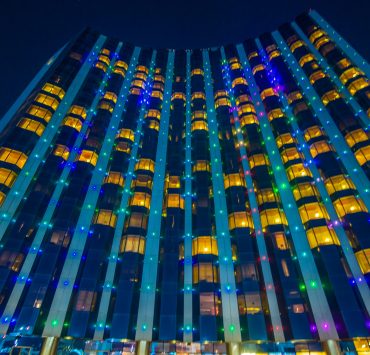Home » The Rising Transparency & Maturity of the Nigerian Real Estate Market
The Rising Transparency & Maturity of the Nigerian Real Estate Market

To a mother, her one-year-old baby and her ten-year-old son are equally children. But that mother celebrates each birthday and acknowledges the age difference, growth and maturity of each child as each day and year passes. It is accurate to concede that the Nigerian real estate market is still in its infancy; perhaps it is no longer a baby but more akin to a toddler or to some, maybe even a teenager. However you see fit, it is iniquitous not to acknowledge the strides achieved and the maturity attained over the years.
Text: Tayo Odunsi
To start with, there wasn’t a budding commercial real estate market just 10 years ago. When the Nigerian real estate market was “birthed”, residential property was the prime focus. Today, occupiers are spoilt for choice on not just residential offerings but also office locations of different grades and types. Lagos, for instance, was just seen as the Island and Mainland back then. Mainland being Ikeja, Ilupeju and perhaps, Yaba while offices on the Island were primarily located at Lagos Island, Victoria Island and Ikoyi. Since then, Oniru, Lekki, Banana Island and Eko Atlantic have joined the list of enviable office addresses. What’s even more glaring is the rise in the quantity and quality of office space. A-grade office developments now dot the Ikoyi and Victoria Island landscape even as a similar pattern is revving up at Banana Island and Eko Atlantic.
The retail real estate sub-market has not been a bystander. Both formal shopping malls and high-street shopping have grown into maturity in no small measure over the past ten years. There is currently over 400,000 sqm of retail mall space in Nigeria which was less than 20% back in 2008, just ten years ago. Most cities like Lagos, Abuja and Port Harcourt have also seen a tremendous rise in high-street shopping in city centres and densely populated nodes. But all these speak to the maturing of the real estate market. The market has also grown in transparency.
“Nigeria has moved about 30 spots from being the 2nd most opaque country measured and is now the 67th most transparent out of 195 countries in the world.”
The Global Real Estate Transparency Index is a biennial report published by JLL since 2010 which ranks countries by the level of transparency of its real estate markets. Countries such as Australia, Canada, UK and US have led the charts as the most transparent markets, while African and Asian countries (except South Africa, currently 21st) have lagged. Nigeria debuted at the 96th position out of 97 countries in 2012, growing to 86th in 2014, moving only mildly to 84th in 2016 and then jumping to the 67th position in 2018. To put this in perspective, in only 6 years, Nigeria has moved about 30 spots from being the 2nd most opaque country measured and is now the 67th most transparent out of 195 countries in the world.
The Global Transparency Index does not only rank countries, it also categorizes them into one of five groups according to its level of transparency. The most transparent real estate markets are categorized as ‘Highly Transparent’ followed by ‘Transparent’ and then the less transparent are tagged ‘Semi-Transparent’ which is followed by ‘Low Transparency’ and finally, ‘Opaque’. As you can imagine, Nigeria started in 2012 as decidedly opaque and is now 7th out of 20 countries in the low transparency category.
The rankings are based on a weighted score achieved by each country in six parameters; performance measurement, market fundamentals, governance of listed vehicles, regulatory and legal, transaction process and sustainability. Most of these are currently improving in Nigeria, hence the improved rankings. Just ten years ago, it would be difficult and very expensive to access a repository that shows prices of properties talk more of a detailed report on the property market. Today such details are freely available via multi-listing sites and real estate services companies.
The progress recorded attests to the great work being done by real estate investors, developers, service providers and multi-listing sites. It also confirms that much more work needs to be done, more collaboration is required and more standardization, as well as capacity development. Ultimately, more information and data on the real estate market must be shared freely to put the Nigerian real estate market on a faster growth trajectory for the next ten years.
Tayo Odunsi is a chartered surveyor and real estate economist. He holds an M.Sc in Real Estate Finance and Investment from the University of Reading and an MBA from the Imperial College, London. He is the CEO of Northcourt Real Estate; a real estate research, brokerage and management company with offices in Lagos and Abuja.
Contact: [email protected]
Featured in Prestige Nigeria Issue 1 Vol. 4 2019



